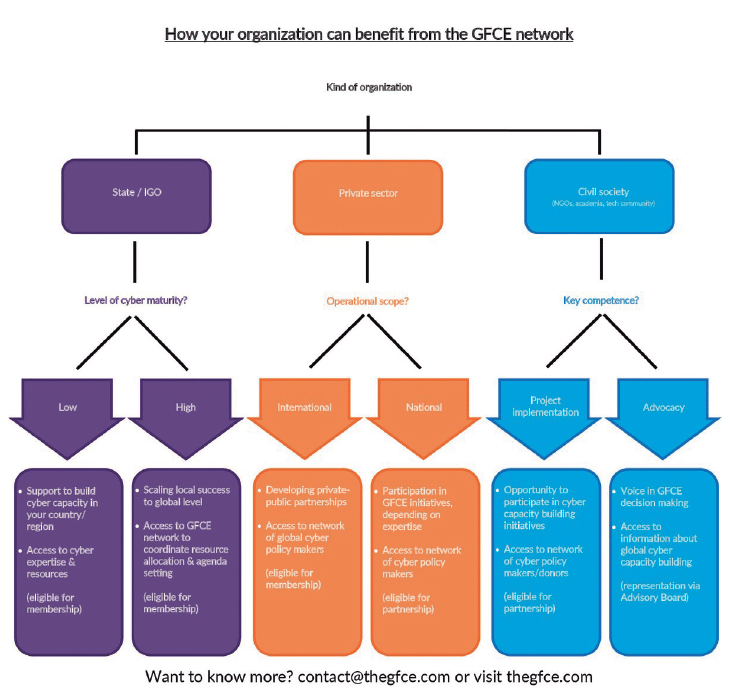News item | 07-12-2016
During the first Annual Meeting of the Global Forum on Cyber Expertise (GFCE) in June 2016 over 100 cyber policymakers and stakeholders from all over the world met in Washington D.C. It was a first opportunity to present the results of the current 12 cyber capacity building initiatives under the GFCE umbrella. The meeting was deliberately organized as a market place to exchange experiences, learn about global best practices and network with valuable organizations both in and outside the GFCE community.
Written by: GFCE Secretariat
Open platform
During the Annual Meeting it became once more apparent how much is already happening in cyber capacity building. Different GFCE members and invitees presented their cyber capacity building projects and initiatives in 17 working sessions. Session discussions demonstrated the very similar challenges organizations all around the world are facing on topics such as developing Cyber Strategies and Computer Emergency Response Teams (CERT), assessing cyber threats, raising cyber campaigns, implementing legal frameworks and workforce training.
While a lot is happening in cyber capacity building, especially in bilateral and regional cooperation, there is also a lack of overview and mechanisms for multistakeholder cooperation on a global level. This is where the GFCE proves its added value. The GFCE aims to provide an overview of worldwide activities and actors in cyber capacity building. Members in the process of building up their cyber capacity can take full advantage of the GFCE network to attract expertise and donors for their cyber capacity building ambitions. More experienced members benefit by sharing lessons learned and scaling local best practices to a global level. The GFCE is an open platform, which means it is open for partnerships and cooperation with external stakeholders. During the Annual Meeting different relevant external stakeholders where invited to share their experiences and best practices, such as the World Economic Forum (WEF), the World Bank and Diplofoundation.

Multistakeholder involvement
During the Annual Meeting a step forward was also made to include civil society in the work of the GFCE. Nine civil society representatives were selected based on an open call for application to form the GFCE Advisory Board. The Board was formally established during the Annual Meeting with the mandate to advice GFCE members and initiatives both on request and on their own initiative. The Advisory Board will play an important role in future Annual Meetings and GFCE decision–making process.
Through membership by states and regional intergovernmental organizations, the GFCE currently represents 66% of the world population. The multistakeholder approach of the GFCE is reflected in openness for members- and partnership for the private sector, NGOs and the Advisory Board. This comprehensive representation of cyber policymakers and stakeholders in the GFCE provides opportunities for future coordination and agenda setting in cyber capacity building.
This article first appeared in the second issue of the Global Cyber Expertise Magazine – November 2016.

